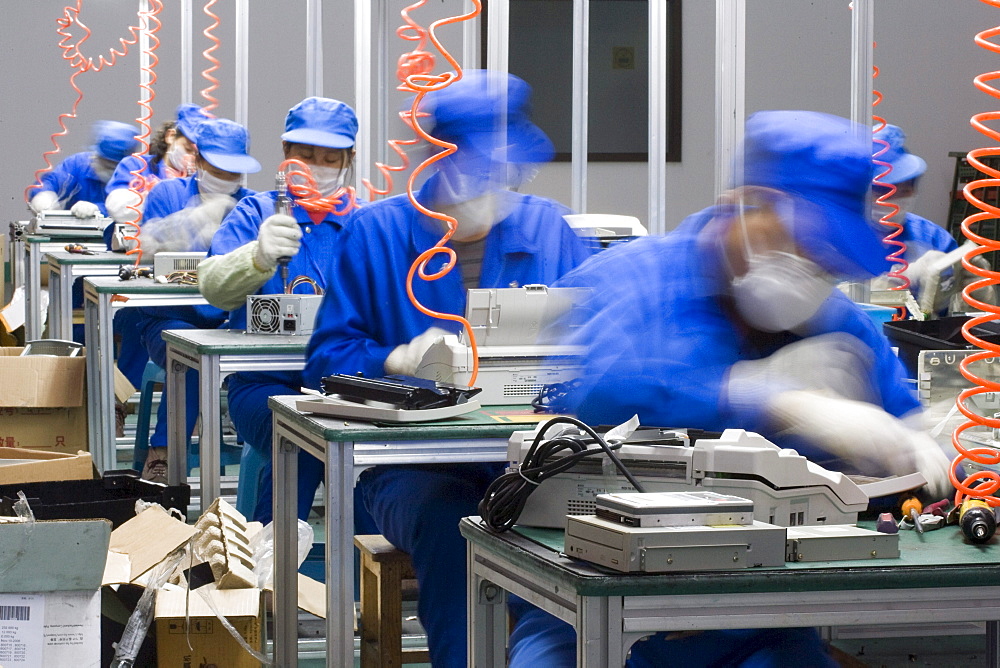Preview

Seven workers are disassembling computers at TES-AMM Shanghai, which was founded on September 21, 2005, currently has 67 employees of which 26 are workers. With an annual production capacity of 10,000 tons, it has only treated 2,000 tons of e-waste from its founding more than a year ago. 'The biggest problem is that there isn't an e-waste recycling channel in China. The biggest chunks of raw materials we get are from government bodies, which are upgrading their equipments, and electronic appliances franchises that are washing out their outdated inventories. We don't have any imported e-waste because that's banned by the government. It takes a worker no more than ten minutes to disassemble a computer, and each worker can deal with between 60 to 70 computers a day,' says Janice Wu, who's the Environment & Quality Management Dept. Manager and Plant Manager Assistant.
| Image ID: | 857-66658 |
|---|---|
| Artist: | Peter Essick |
color image
horizontal
shanghai
china
recycling
recycle
e waste
electronics
computers
waste
high tech
hi tech
scrap
garbage
end of life
plastics
second hand
used
obsolete
workers
job
medium group of people
blue
factory
blurred motion
motion blur
trash
technology
poisonous
hazardous
pollution
chemical
green
ecology
environment
greencollection